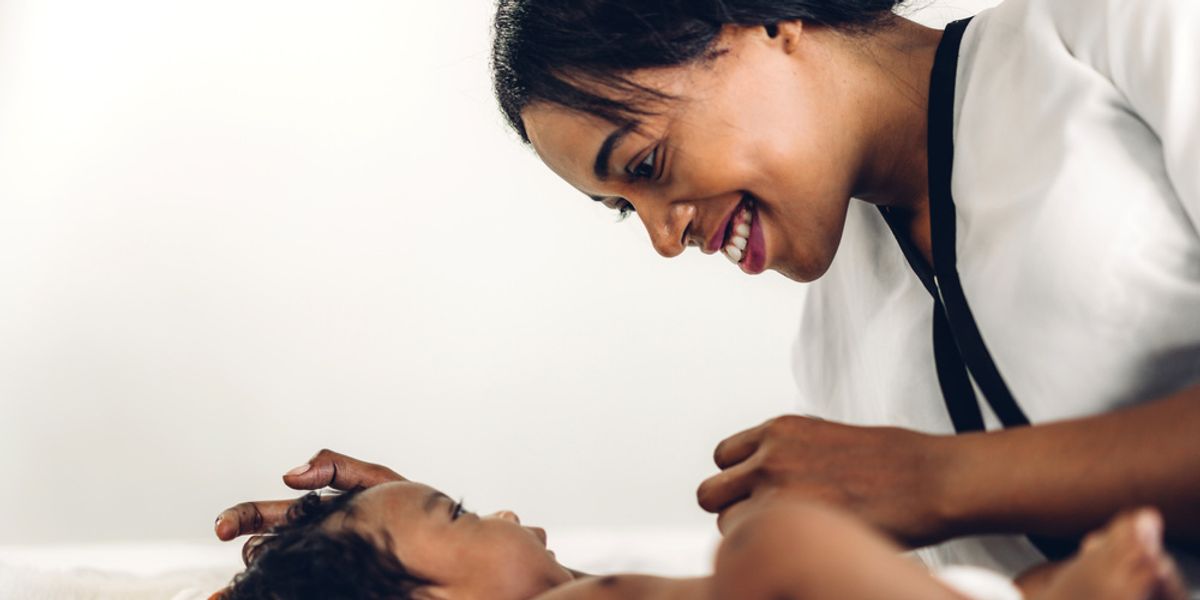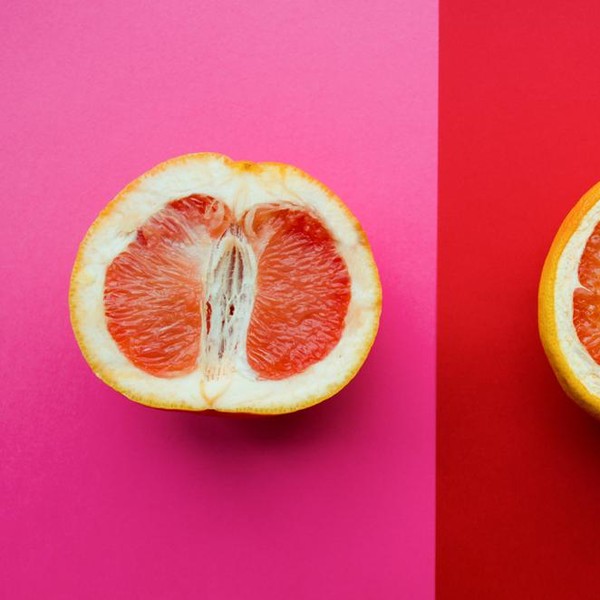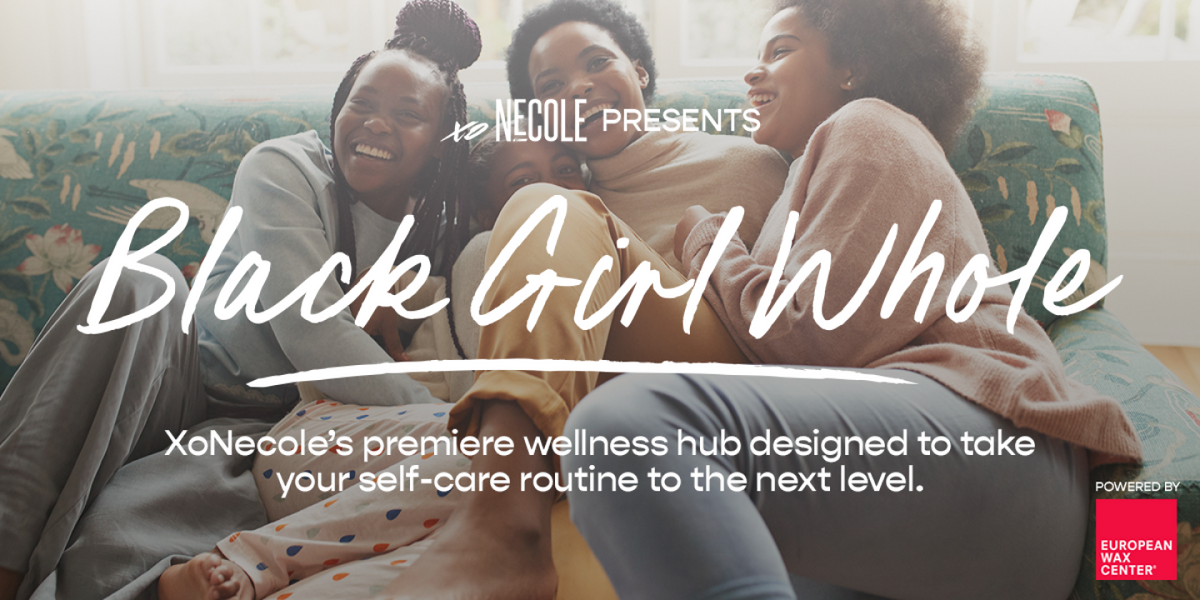
The Silent Killer: How I Overcame Postpartum Depression Amid A Pandemic
Most women are taught to be strong, particularly black women. For centuries, we've tended to the slavemaster's children while trying to raise our own. We've endured unequal pay for equal work. We've endured senseless murders by those who were supposed to protect us. Recently, I saw a post on Instagram about black women being called strong, it read:
"Please stop calling black women strong as a compliment. 'Strong' is why our mortality rate in medicine is high. Strong is why our pain is not taken seriously. Strong is why there is less empathy for us. Strong is why we're put last in every movement, because we can 'handle' it."
Reading that post made me realize that this false sense of always feeling the need to be strong is sometimes the very thing that can silently kill us. We take on so much, push past so much, endure so much until it is usually to our own detriment. During one of the happiest moments of my life, I found myself literally crumbling inside.
In April, I gave birth to a beautiful, healthy baby girl. For years, I'd prayed to one day have a daughter. The day finally came and as soon as we arrived home from the hospital, I started to feel everything but joyful.
I felt sad, overwhelmed, and I couldn't shake it. I Google-searched my symptoms and the first thing that popped up was PPD, also known as postpartum depression.

Shutterstock
I had to Google it because this was something I'd never heard discussed among my family or mommy friends. Why is that? It may be because we typically hold these kinds of things inside and deal with them as best as we can. Sometimes we hold it in because we want to feel strong and admitting these feelings could be presumed "weak"... but that is completely false.
Having a child during a pandemic was one of the loneliest, most mentally exhausting things I had ever done.
It was mentally exhausting because of the constant thought of how to best protect my daughter to make sure she doesn't get COVID-19. In addition, due to all of the social distancing, we didn't get to spend this time with family and friends. Although I had my husband and son, I couldn't quite explain what I was feeling so I tried to deal with it on my own. I would pray daily and simply ask God what is wrong with me while crying in the shower. It became an everyday occurrence. Then, I decided to talk to my husband about it.
He was so supportive and understanding, and it was the positivity I needed. I then decided to seek professional help to try and get through it. Nine weeks later, I still have days where I just don't feel like myself but things are getting better. Although what worked for me may not work for the next woman, I wanted to share a few ways that I was able to better manage my PPD.

Shutterstock
Do Something Productive
The work that I do for my clients as a publisher brings me joy so I began to work more to keep my mind occupied and my days productive.
Prioritize Self-Care
Even if it's just a quick walk around the neighborhood, do something that'll get you active. Studies show that even just 30 minutes of outdoor activity can have significant benefits for our mind and health.
Utilize Online Resources
With social distancing in place, there are a ton of virtual therapy sessions available. Open Path Collective is a great, affordable therapy option.
Have A Support System
There are people around you who care and would love to be there for you. Reach out to someone that you trust and share how you're feeling. Their positivity will boost your spirit and help you through.
Remember, you are not in this alone. There are other women battling the same thing. Be patient with yourself. You just gave birth to a beautiful miracle, it's OK to take your cape off for a moment. Allowing yourself to be vulnerable, to discuss what you're feeling, and to seek help takes true strength.
You'll always be Superwoman, but even the strongest heroes need a little extra love and encouragement sometimes. You've got this.
Featured image by Shutterstock
- I Overcame Postpartum Depression in a Way You Wouldn't Expect ›
- How I Overcame Postpartum Depression and Anxiety | The Mighty ›
- Postpartum Depression and Anxiety: 5 Women Share What Helped ... ›
- This Is How I Overcame Postpartum Depression – Kveller ›
- How I Overcame Postpartum Depression | Postpartum Support ... ›
Black women are not a monolith. We all are deserving of healing and wholeness despite what we've been through, how much money we have in the bank, or what we look like. Most importantly, we are enough—even when we are not working, earning, or serving.
Welcome to Black Girl Whole, your space to find the wellness routine that aligns with you! This brand-new marketplace by xoNecole is a safe space for Black women to activate their healing, find the inspiration to rest, and receive reassurance that we are one small act away from finding our happiness.
Want to discover where you are on your wellness journey? You don't have to look far. In partnership with European Wax Center, we're bringing you a customized wellness quiz to help you up your wellness game. Answer our short series of questions to figure out which type of wellness lover you are, what you need to bring more balance into your life, and then go deeper by shopping products geared towards clearing your mind, healing your body, and soothing your spirit.
Ready to get whole? Take our quiz now!
Michelle Williams Says The Key To Her Youthful Skin Is Eating Bell Peppers 'Like Apples,' Here's Why
Grammy award-winning singer, actress, and author Michelle Williams recently revealed the unconventional way she maintains her ageless appearance.
Unlike many celebrities who follow a strict skincare regimen with various products, the 43-year-old credited bell peppers for the secret behind her youthful glow. Williams shared this revelation as she appeared on The Terrell Show, discussing her personal life, Destiny's Child, and solo career achievements.
In the June interview, the "Say Yes" vocalist disclosed that she eats bell peppers regularly because they contain a lot of water.
"Okay, this is no lie. I literally eat bell peppers like they're apples. You know how much water is in a bell pepper... It's so good," she said while mentioning her favorite bell pepper to munch on. "The red ones are the sweetest. I eat them like apples. I don't put nothing on them. They're so good."
Healthline reports that bell peppers retain 92% of water. Further into the conversation, Williams added that even with her busy schedule and needing to travel, she prioritizes getting some bell peppers by having them delivered to her hotel room.
Although the Wrath: A Seven Deadly Sins Story star didn't expand on if she uses any skincare products, she did, however, list wine as another factor that has helped contribute to her ageless appearance.
With Williams' recent admission, xoNecole has uncovered three skin benefits one could attain if they add bell peppers to their diet.
Benefits To Eating Bell Peppers
Vitamin C and Collagen
According to Healthline, red or yellow bell peppers have "the best sources of vitamin C." This particular vitamin is used to create collagen, a protein that keeps an individual's skin "firm and strong" by reducing the appearance of wrinkles and pigmentation.
Vitamin A
Healthshots reported that red bell peppers also have a high source of Vitamin A. Consuming a good amount of red bell peppers helps "prevent sun damage" by delaying collagen's breakdown process. At the same time, vitamin A moisturizes, prevents breakouts, and repairs damaged skin by "speeding up" the healing process.
Antioxidants
Healthshots also claimed that regularly consuming red bell peppers benefits one's skin health because it contains capsanthin, an antioxidant that stops "UVA and UVB damage." Other advantages include preventing "early signs of aging" and "strengthening" one's skin's "reparative abilities."
With this information, it seems like it's time to switch up our eating habits and maybe add a few bell peppers in the mix if we too, want to age gracefully like Michelle Williams.
Let’s make things inbox official! Sign up for the xoNecole newsletter for daily love, wellness, career, and exclusive content delivered straight to your inbox.
Feature image by Gary Gershoff/Getty Images






